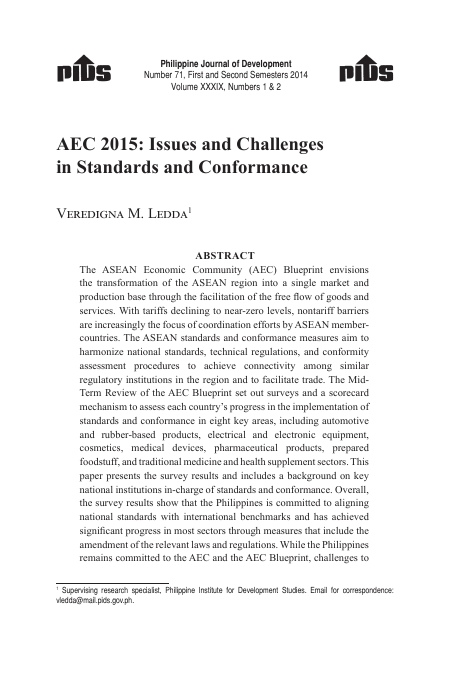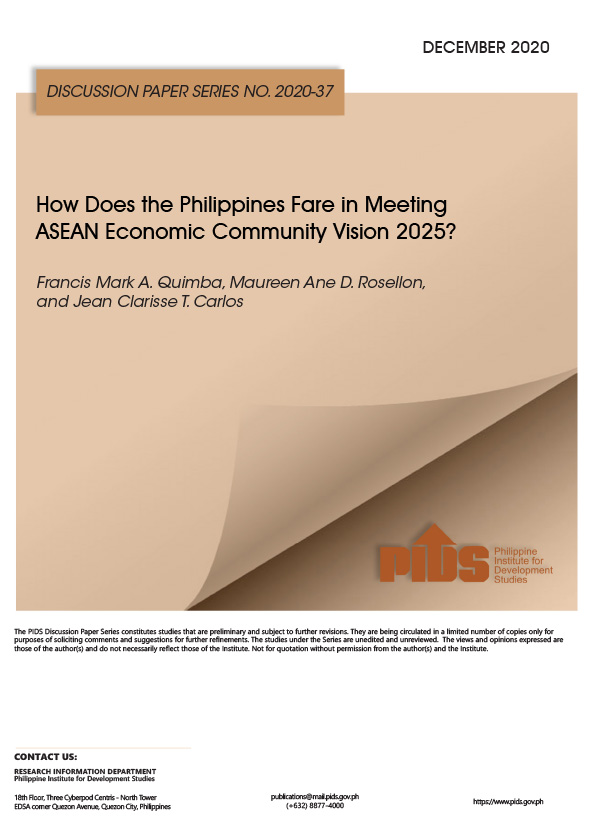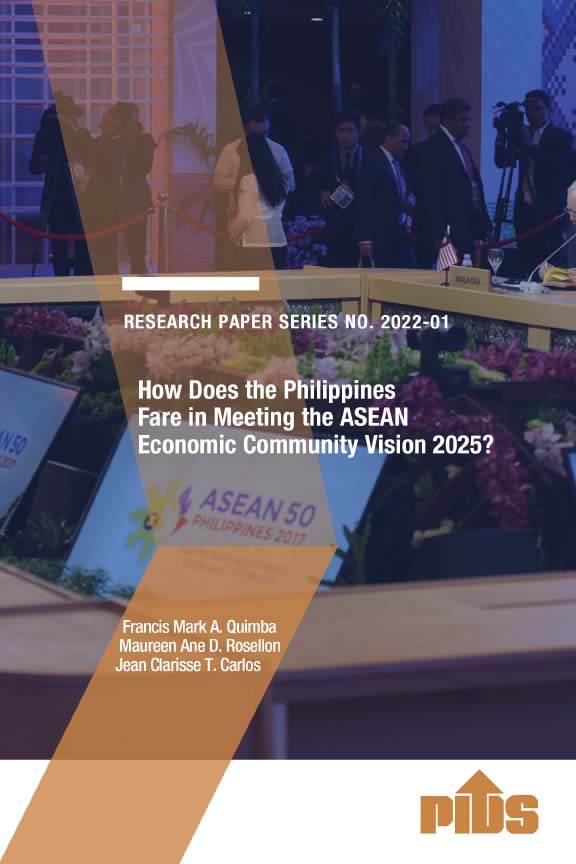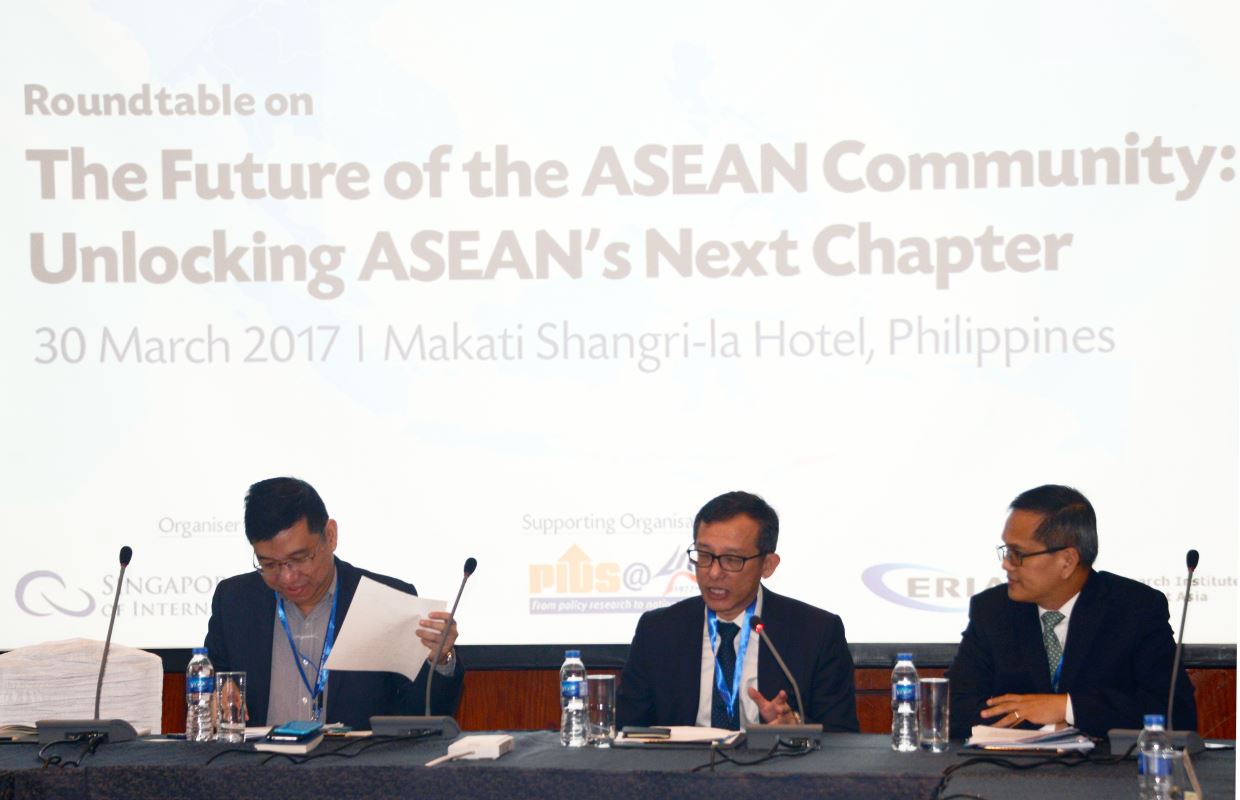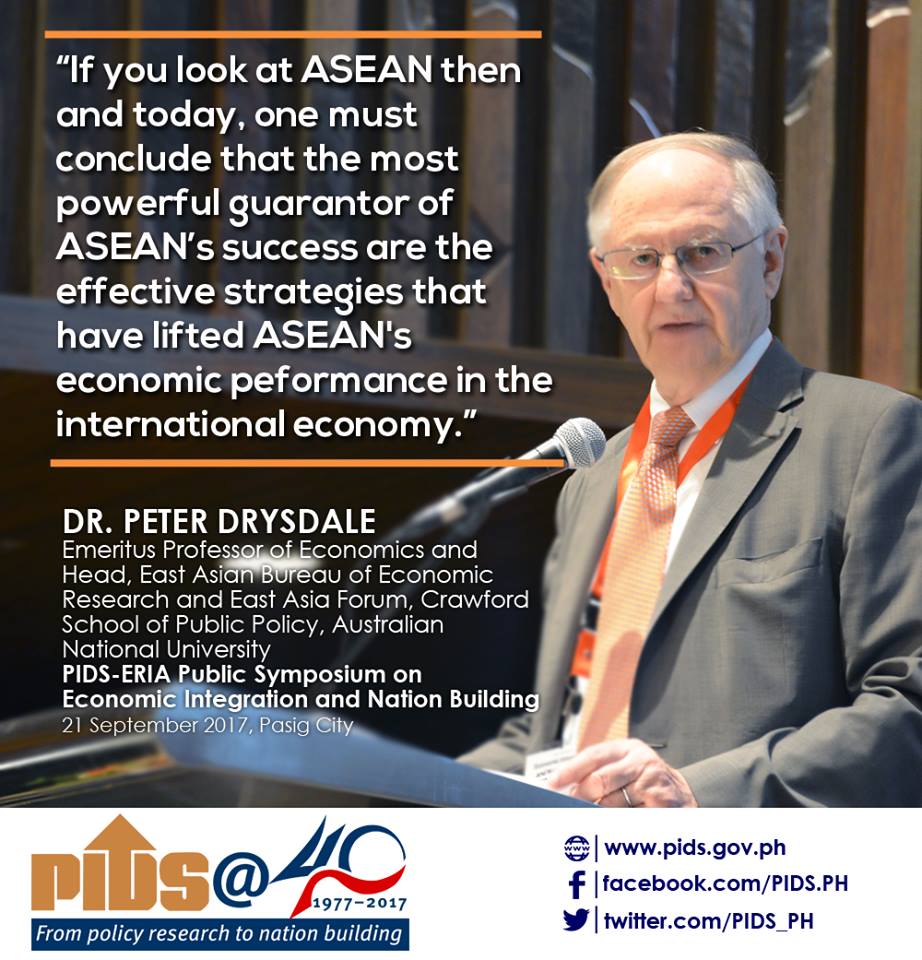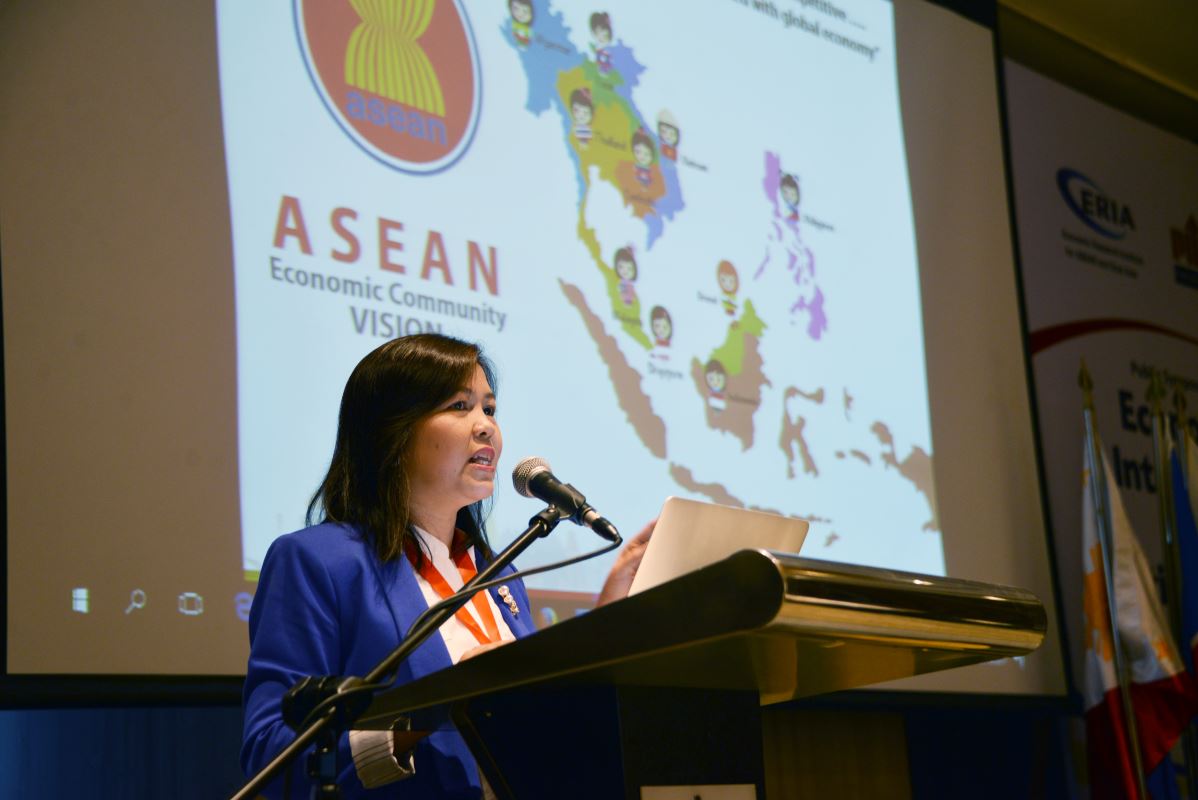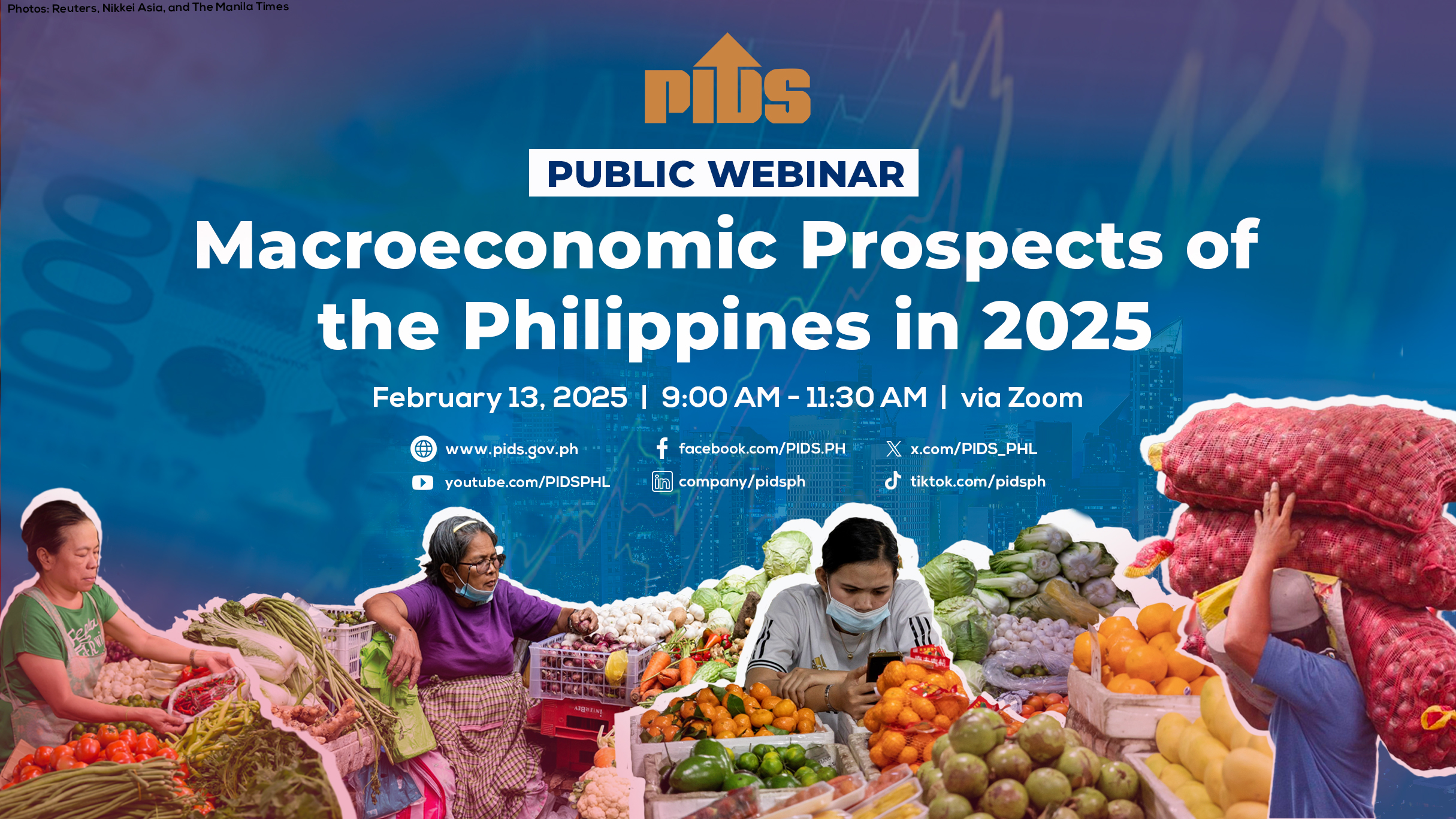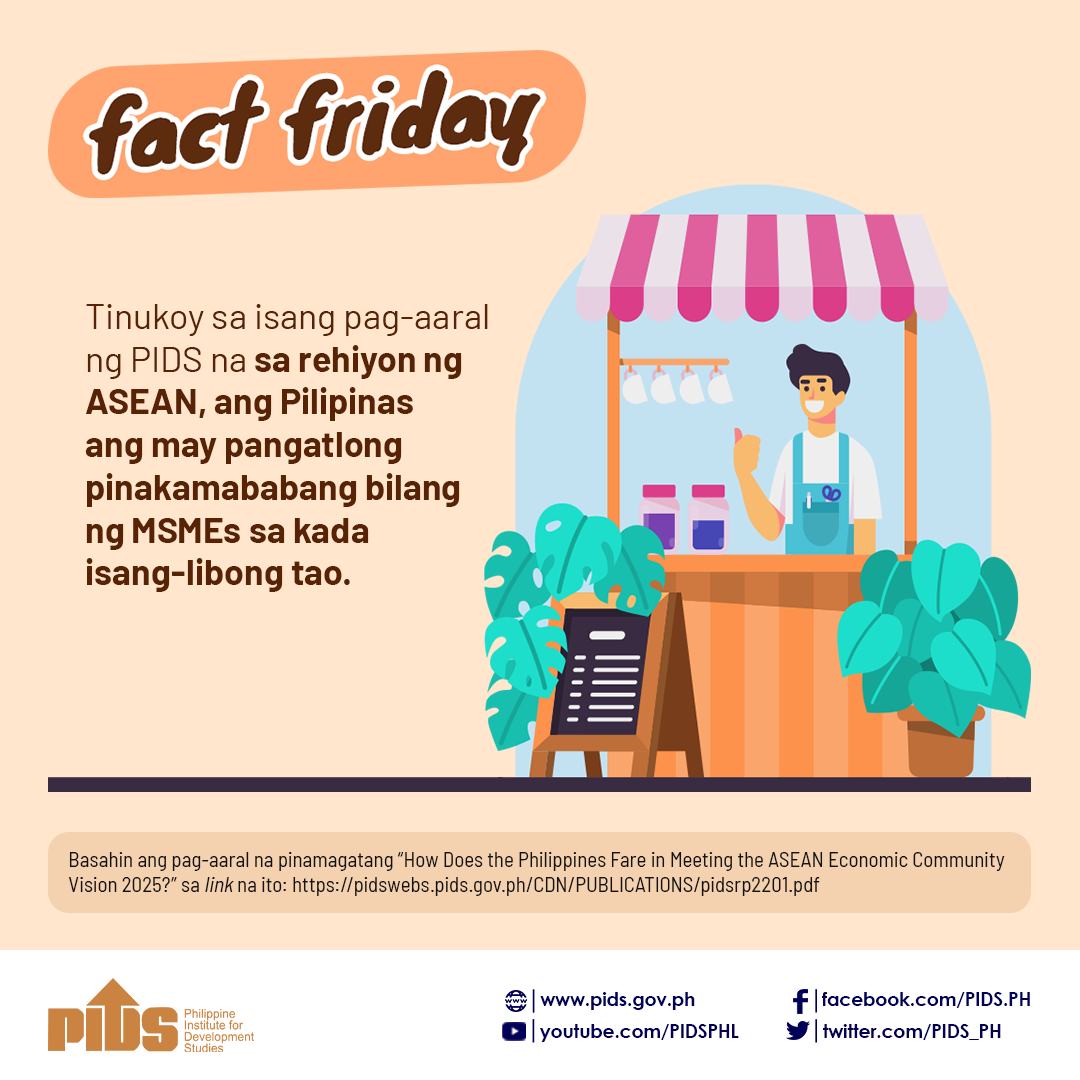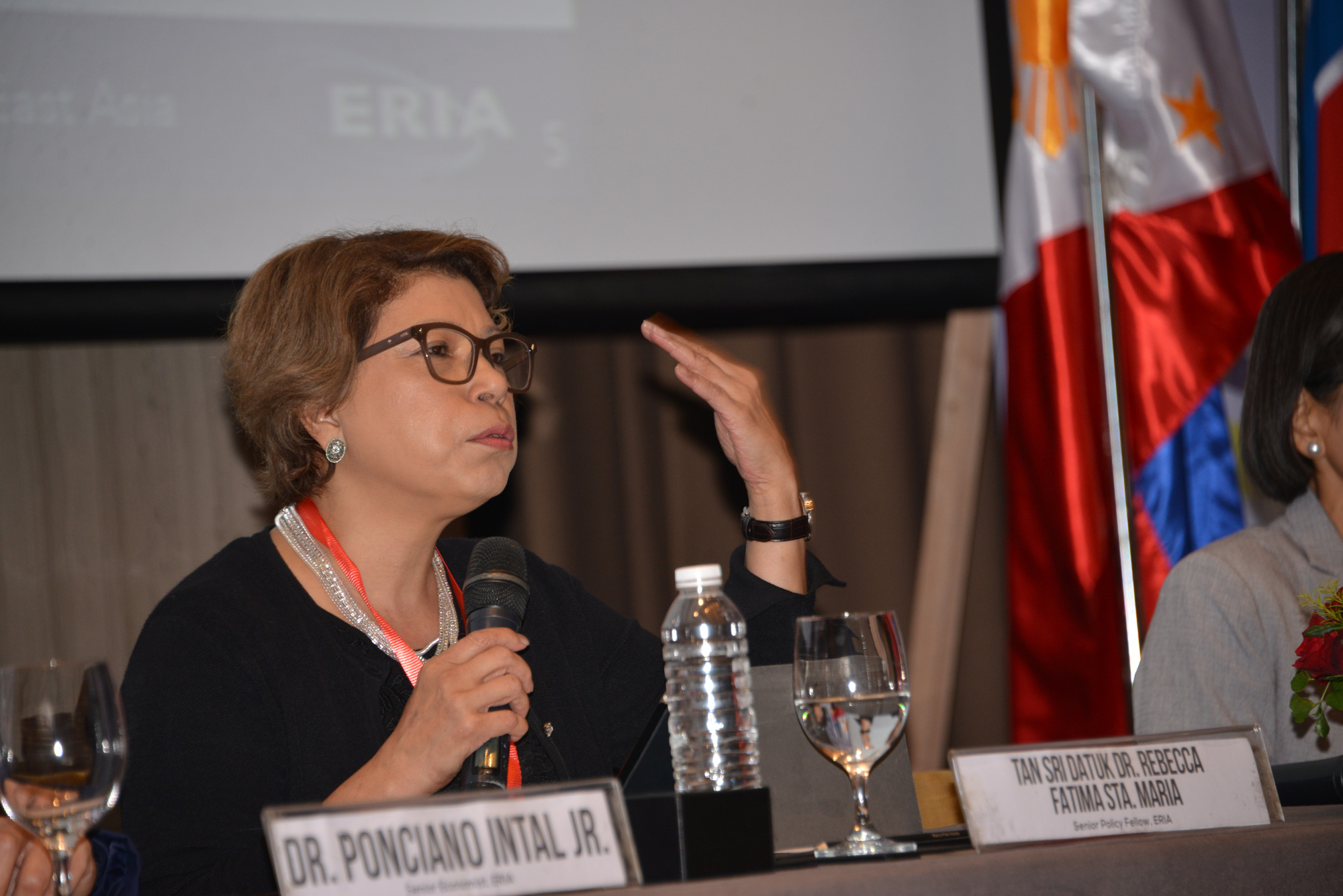
To achieve the goals of the ASEAN Economic Community (AEC) 2025, ASEAN member-states should strive to achieve an environment where good governance prevails so that micro, small, and medium enterprises (MSMEs) can thrive. This was emphasized by Sri Datuk Dr. Rebecca Sta. Maria during a public symposium on ASEAN Economic Integration and Nation Building held recently at the Marco Polo Hotel in Ortigas.
The event, which aimed at highlighting the opportunities and challenges in building the ASEAN Economic Community (AEC), was organized by state think tank Philippine Institute for Development Studies (PIDS) and Jakarta-based Economic Research Institute for ASEAN and East Asia (ERIA) in support of the 50th founding anniversary of the Association of Southeast Asian Nations (ASEAN).
According to Sta. Maria, a senior policy fellow at ERIA, part of good governance in the ASEAN context is making sure that governments have a strong relationship with the business community and this includes conducting regular consultations. “Programs involving micro, small, and medium enterprises, regular consultation with the business community—these provide voice to different sectors of society in the ASEAN,” she explained.
Rule of law
Sta. Maria added that member-states should make an effort to create policies that will assist agencies in doing self-regulation, citing Malaysia’s regulatory practice wherein government agencies have to justify why there are introducing a new policy or regulation.
She stressed that it is important to evaluate both the old and current policies and regulations of each agency to keep up with the present times. This entails a careful study of their long-term implications, she added.
“We are obsessed over the today, and less concerned about the tomorrow. When we negotiate, it's always about the immediate impact of our policies on the economy today. As opposed to, ‘If this is implemented, what is the long-term implication of what we are doing today?’”
Above all, Sta. Maria said laws need to have more teeth and that governments need to be strict when it comes to the imposition of laws, saying that the “rule of law underpins it all”.
Political will
Stakeholders, not only from government, but from other sectors of the society should have the political will to improve with the changing needs of the society, Sta. Maria said.
In the Philippines, there are ongoing efforts to improve the regulatory system in the country, but there is a need to sustain these.
“It has been a waste of resources already for some government agencies because the regulation of policies is just at the start, then along the way, monitoring and evaluation become weak or do not happen at all,” Eugenio Santiago, a participant, said during the open forum.
Recently, the government established Project Repeal, which is intended to reduce the regulatory burden on firms.
In 2015, PIDS dedicated the celebration of the Development Policy Research Month (DPRM) to the theme “Effective Regulations for Sustainable Growth” to emphasize the need for enhanced regulatory system in government. The DPRM is an annual nationwide event led by PIDS every September pursuant to Presidential Proclamation No. 247. It aims to cultivate a strong culture of research and use of data and evidence among the country’s national and local decisionmakers in planning and policymaking as well as raise the public’s literacy of important socioeconomic issues. ###
The event, which aimed at highlighting the opportunities and challenges in building the ASEAN Economic Community (AEC), was organized by state think tank Philippine Institute for Development Studies (PIDS) and Jakarta-based Economic Research Institute for ASEAN and East Asia (ERIA) in support of the 50th founding anniversary of the Association of Southeast Asian Nations (ASEAN).
According to Sta. Maria, a senior policy fellow at ERIA, part of good governance in the ASEAN context is making sure that governments have a strong relationship with the business community and this includes conducting regular consultations. “Programs involving micro, small, and medium enterprises, regular consultation with the business community—these provide voice to different sectors of society in the ASEAN,” she explained.
Rule of law
Sta. Maria added that member-states should make an effort to create policies that will assist agencies in doing self-regulation, citing Malaysia’s regulatory practice wherein government agencies have to justify why there are introducing a new policy or regulation.
She stressed that it is important to evaluate both the old and current policies and regulations of each agency to keep up with the present times. This entails a careful study of their long-term implications, she added.
“We are obsessed over the today, and less concerned about the tomorrow. When we negotiate, it's always about the immediate impact of our policies on the economy today. As opposed to, ‘If this is implemented, what is the long-term implication of what we are doing today?’”
Above all, Sta. Maria said laws need to have more teeth and that governments need to be strict when it comes to the imposition of laws, saying that the “rule of law underpins it all”.
Political will
Stakeholders, not only from government, but from other sectors of the society should have the political will to improve with the changing needs of the society, Sta. Maria said.
In the Philippines, there are ongoing efforts to improve the regulatory system in the country, but there is a need to sustain these.
“It has been a waste of resources already for some government agencies because the regulation of policies is just at the start, then along the way, monitoring and evaluation become weak or do not happen at all,” Eugenio Santiago, a participant, said during the open forum.
Recently, the government established Project Repeal, which is intended to reduce the regulatory burden on firms.
In 2015, PIDS dedicated the celebration of the Development Policy Research Month (DPRM) to the theme “Effective Regulations for Sustainable Growth” to emphasize the need for enhanced regulatory system in government. The DPRM is an annual nationwide event led by PIDS every September pursuant to Presidential Proclamation No. 247. It aims to cultivate a strong culture of research and use of data and evidence among the country’s national and local decisionmakers in planning and policymaking as well as raise the public’s literacy of important socioeconomic issues. ###

